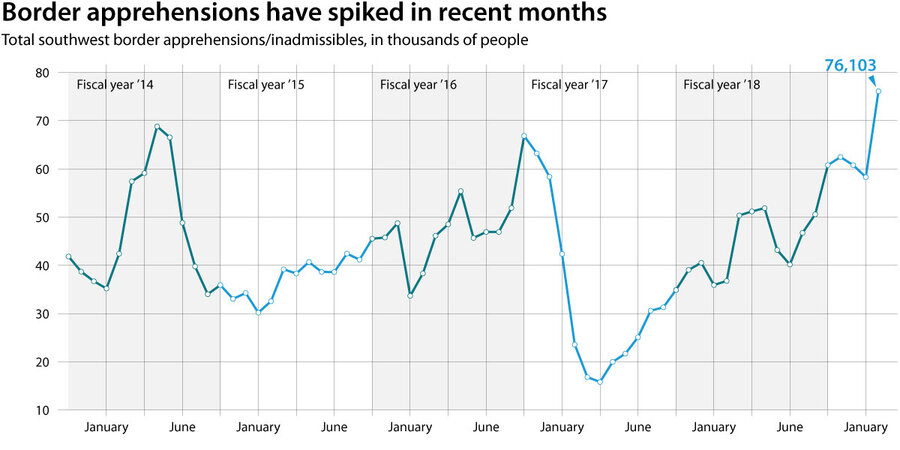Covering Democratic candidate Beto O’Rourke in New Hampshire was like watching a “freight train of fervor,” says our writer. But voters there are testing him on something else as well: his ability to answer tough questions.
Monitor Daily Podcast
- Follow us:
- Apple Podcasts
- Spotify
- RSS Feed
- Download
 Amelia Newcomb
Amelia Newcomb
What is our role in bolstering healing amid great stress and potential division? And how can we replace a sense of “them” – the communities in our society with which we may not be familiar – with a sense, simply, of “us”?
In New Zealand, the embrace of “us” has been modeled by Prime Minister Jacinda Ardern with a grace that suggests nothing could be more natural. And it has sent a powerful message around the globe.
There’s the national stage: Three days ago, Parliament opened with an imam offering a prayer of comfort. Representatives of multiple faiths attended in solidarity. On Friday, one week after a terrorist killed 50 worshipers at two mosques in Christchurch, the Muslim call to prayer will be broadcast on national TV and radio, and a two-minute silence will be observed.
Some gestures are more local: In the city of Hamilton, the Mongrel Mob biker group has pledged to stand vigil Friday so worshipers at one mosque can “feel at ease.” The president of the Muslim Association has responded with an invitation: “We want you to be inside, with us.”
The healing power of “us” was on display Thursday as well when upward of 10,000 people marched in silent camaraderie – cellphones stashed – to a stadium in the city of Dunedin. After the mayor’s speech, an imam’s prayer, and a waiata, or Maori song, the crowd stayed silent. Then they rose, together, and sang the national anthem.
Now for our five stories, which look at the buzz around Beto O’Rourke, the legal rights of lakes, and how job titles may or may not signal equality in France.











